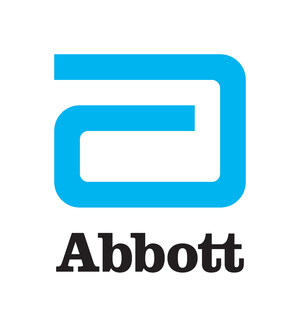FDA Advisory Committee Votes Favorably on Expanding the Indication for Abbott's Carotid Stent System to Include Patients at Standard Surgical Risk
ABBOTT PARK, Ill., Jan. 26, 2011 /PRNewswire/ -- Abbott (NYSE: ABT) today announced that the U.S. Food and Drug Administration (FDA) Circulatory System Devices Panel of the Medical Devices Advisory Committee voted that, for symptomatic and asymptomatic carotid artery disease patients at standard surgical risk, there is reasonable assurance that the benefits of the RX ACCULINK® Carotid Stent System outweigh its risks (Yes: 7, No: 3, Abstain: 1). Currently, RX ACCULINK is approved for the treatment of symptomatic and asymptomatic patients at high risk of adverse events from carotid endarterectomy (surgery). The FDA will take into account the panel's advice in making its decision on whether to expand RX ACCULINK's current indication to include patients at standard surgical risk; the company expects a decision later this year.
"After a thorough review of the scientific evidence, we are pleased that the advisory committee concluded that less-invasive carotid artery stenting is as safe and effective as surgery for patients at standard surgical risk," said Charles A. Simonton, M.D., FACC, FSCAI, divisional vice president, Medical Affairs, and chief medical officer, Abbott Vascular. "If the FDA approves an expanded indication, carotid artery stenting would represent an important additional option for physicians as they work with their patients to determine the best individualized treatment approach."
The committee's recommendation followed a review of data from CREST (Carotid Revascularization Endarterectomy vs. Stenting Trial), the largest prospective study conducted to date comparing stenting to surgery. CREST demonstrated that carotid artery stenting and carotid surgery had similar safety and long-term outcomes for patients with symptomatic and asymptomatic carotid artery disease who were at standard surgical risk. In an analysis of 2,307 standard-risk patients with symptomatic and asymptomatic disease, carotid artery stenting demonstrated non-inferiority to surgery for the primary composite endpoint of death, any stroke and myocardial infarction (heart attack) within 30 days of the procedure plus ipsilateral (same side) stroke from 31 to 365 days. The results showed 7.1 percent of stenting patients and 6.6 percent of surgery patients experienced an event, the difference being non-significant.
About RX ACCULINK Carotid Stent System
The RX ACCULINK Carotid Stent System, used in conjunction with the RX ACCUNET® Embolic Protection System, is indicated for the treatment of patients at high risk of adverse events from carotid endarterectomy who require carotid revascularization and meet certain criteria. Additional information about the RX ACCULINK carotid stent system, including important safety information, is available online at www.abbottvascular.com/static/cms_workspace/pdf/ifu/carotid_intervention/RX_Acculink_Carotid_Stent_System.pdf.
About Abbott Vascular
Abbott Vascular is a global leader in cardiac and vascular care with market-leading products and an industry-leading pipeline. Abbott Vascular offers a comprehensive cardiac and vascular devices portfolio, including products for coronary artery disease, vessel closure, endovascular disease, and structural heart disease.
About Abbott
Abbott is a global, broad-based health care company devoted to the discovery, development, manufacture and marketing of pharmaceuticals and medical products, including nutritionals, devices and diagnostics. The company employs nearly 90,000 people and markets its products in more than 130 countries.
Abbott's news releases and other information are available on the company's Web site at www.abbott.com.
SOURCE Abbott
WANT YOUR COMPANY'S NEWS FEATURED ON PRNEWSWIRE.COM?
Newsrooms &
Influencers
Digital Media
Outlets
Journalists
Opted In





Share this article